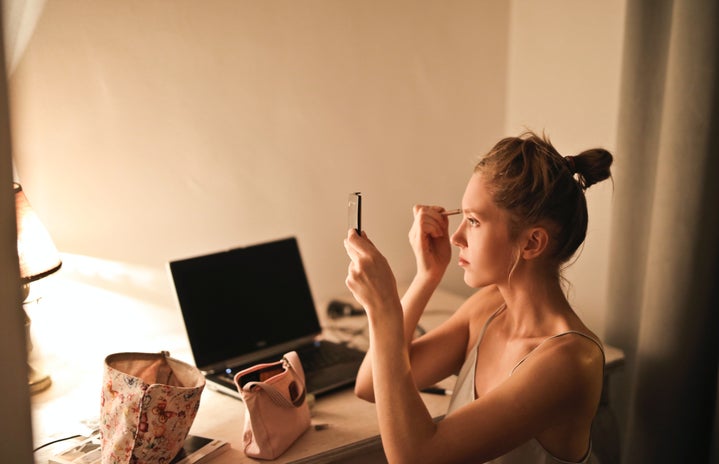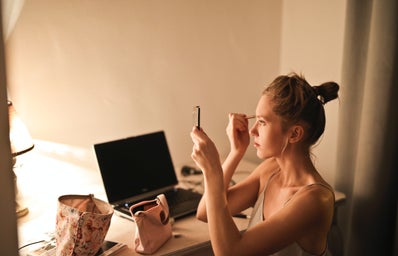“Danger hides in beauty and beauty in danger.”- Belva Plain
Cambridge Dictionary defines the word ‘bias’ as “the action of supporting or opposing a particular person or thing in an unfair way, because of allowing personal opinions to influence your judgement” and one such bias that humans have inculcated is that towards the outward appearance of a person.
It is said that our position in the physical attractiveness spectrum can determine our quality and condition of life, irrespective of our personality, skills, intelligence, or anything else we may have to offer. This bias, also known as lookism, according to a 2009 report in the Journal of Industrial Relations, is defined as “Prejudice or discrimination on the grounds of a person’s appearance”, and is prevalent in dating, social settings, and professional life.
The idea of pretty privilege goes with the belief that people (specifically women) are treated better and given more privileges and opportunities just because of their good looks and attractive appearance. Economists Markus Mobius and Tanya Rosenblat proved in 1994 that the “labor market sorts the best-looking people into occupations where their looks are productive.” In 2006, a Harvard University study found that physically attractive workers are more confident, and this confidence increases wages. This confidence stems from how society treats physically attractive people. But this same confidence and ethereal façade can also mislead people into thinking that they have endless capabilities and that their colleagues may hold high standards when it comes to their potential.
In 2016 a study was conducted at the Metropolitan State University of Denver, wherein researchers had outside observers rate the physical attractiveness of ten thousand female students. Using these girls’ standardized test scores as a control, they compared the grades of the more attractive students with the grades of the less attractive ones. The former tended to perform much better in class. But this changed when the same students took online courses. The ‘prettier’ students didn’t do as well. In other words, female students benefit from perceived physical attractiveness in academic contexts. Online learning levels the playing field.
Florence Given in her renowned book Women Don’t Owe You Pretty said, “By having an appearance which confirms with the societal beauty standards has helped me see how my own prettiness has enabled me opportunities, opportunities that women who fall outside of this category have to work harder for. Whether I thought I was attractive or not, for the first time I had to acknowledge the objective fact that I sit high on society’s scale of desirability, by being slim, non-disabled and white. As women we don’t want to admit that we have ‘pretty privilege’ because we have been taught to be unaware of it.”
Beauty, as enamoring as it can be, like a beautiful rose has thorns that make it deadly. Marilyn Monroe, an epitome of magnificent beauty and known as the ‘blond bombshell’, didn’t have the privilege to lay on a bed of roses during her acting days, as she was trapped in ‘dumb blonde’ sexy roles and subjected to sexual exploitation from time to time. The beauty penalty is a kind of vengeance. People have very high expectations of stunning people, so when they fail to adhere to those standards, they are punished considerably more than unattractive people.
This privilege does not only revolve around women but men too have personally encountered this sense of entitlement in their lives. 21-year-old Cameron Herrin was sentenced to 24 years of imprisonment for vehicular homicide. Consequently, there was a major uproar in social media, demanding the release of Cameron from jail as he was ‘too cute and young’ to be penalized. Dr. Todd Grande of Wilmington University’s College of Social and Behavioral Sciences in Delaware, claims that the case of people supporting Herrin may be because of attractiveness bias. According to him, there exists a general bias towards individuals, whom people find attractive and as a result, they escape consequences more often than those who are not, and they are sometimes given more opportunities.
It is high time that people start changing their perspective on beauty and begin looking at it more holistically. Dostoevsky said, “Beauty will save the world,” because beauty is not merely an aesthetically pleasing stimulus, but something that encapsulates goodness and truth. The moment we are able to see the truth and goodness in every person, only then we would be able to treat each other the way they are supposed to be treated, like humans and not as objects.


